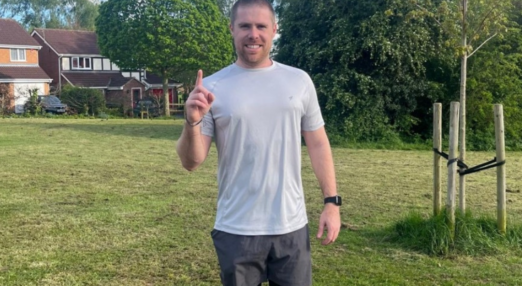Supporting yourself after a suicide
Grieving the loss of someone who has died by suicide can be an especially complicated and painful process.
It may feel like your world has changed in an instant, and navigating day-to-day life can seem overwhelming. Everyone copes with grief in their own way, but here are some gentle and practical steps that may help you support yourself as you begin to heal.
Finding ways to remember
Remembering the person, perhaps in happier times, is a way of maintaining a bond with them after death. Keeping the memory of your loved one alive can be a comforting way to stay connected to them.
You might find comfort in:
-
Looking through photographs or keepsakes.
-
Listening to music they loved or watching their favourite films.
-
Visiting places that were special to them or to both of you.
-
Creating a memory box filled with items that remind you of them.
-
Organising a gathering, event, or activity in their name, like a charity walk or fundraiser.
-
Writing about them—memories, letters, poems, or journal entries.
Rituals
Developing ‘rituals’ such as creating lasting memorials or acts such as lighting a candle at a certain time each week is another way to maintain the relationship you had with the person who died. Rituals can bring a sense of control and comfort, helping you feel close to the person even though they are no longer physically here. These personal memorials don’t need to be elaborate. Small, consistent actions can offer stability and meaning when everything else feels uncertain.
Walking and nature
Taking care of your physical health is closely connected to your emotional wellbeing, especially during grief. In the early stages, even basic self-care can feel like a struggle, but small steps can make a real difference.
When you’re ready, try reintroducing gentle routines or hobbies you used to enjoy. Spending time outdoors, especially in nature, has been shown to improve mental health and reduce stress. You don’t need to do anything strenuous, just walking through a park, listening to birdsong, or feeling the breeze on your face can offer a quiet sense of grounding.
Watch out for risky behaviour
The grief that follows a suicide can feel all-consuming. You may feel hopeless, numb, or unsure about the future. Sometimes people find themselves taking risks with their own health or wellbeing, including self-harm, substance use, or reckless decisions. If you are feeling that there is little point in life then you can find yourself taking risks with your own health or safety. It’s important you talk to someone if you feel like this. It can be tempting to drink more or take drugs after a traumatic experience. But it’s important to remember that these things won’t take the pain or hurt away – and can often make you feel worse.
Asking for help
One of the most important things you can do is give yourself permission to ask for help. There are a number of organisations that can help you. Being bereaved by suicide is a unique and painful experience and you might prefer to speak with people who deal with that directly. It can be hard to ask for help, sometimes people feel they don’t deserve it or shouldn’t need it. But it is important to reach out and talk to someone, be it friends and family, your doctor, Cruse or other organisations who can help.
Personal Stories
-

Alice’s story
Alice’s Dad took his own life in March 2019. In the run up to this year’s World Suicide Prevention Day on September 10th, Alice shares her story with us.
Read more
-

Andy’s Story: When a friend dies by suicide
Andy’s friend Marc took his own life in May 2021. As part of World Suicide Prevention Day on September 10th, Andy shares his story with us.
Read more
